Home>Articles>How Long Are Fresh Eggs Good For In The Refrigerator
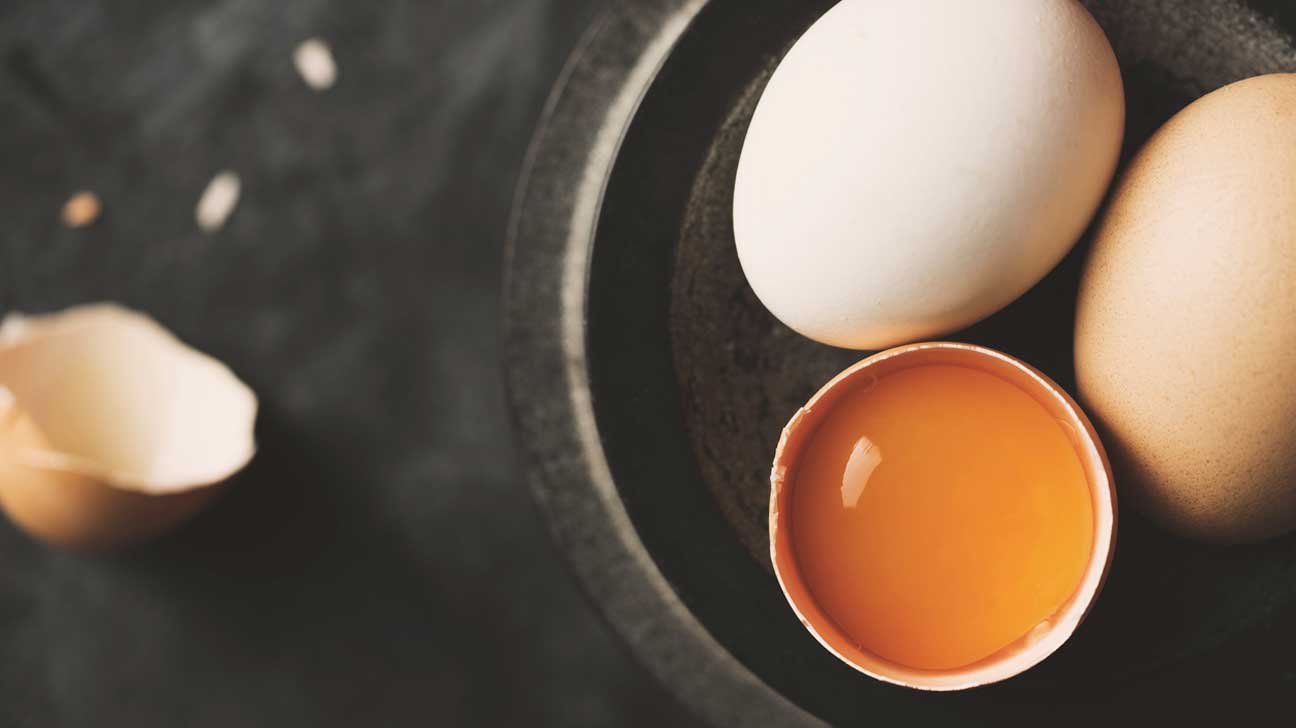

Articles
How Long Are Fresh Eggs Good For In The Refrigerator
Modified: January 18, 2024
Discover how long fresh eggs can stay good in the refrigerator. Read more about articles on preserving eggs, storage tips, and expiration dates.
(Many of the links in this article redirect to a specific reviewed product. Your purchase of these products through affiliate links helps to generate commission for Storables.com, at no extra cost. Learn more)
Introduction
Welcome to the world of fresh eggs! Whether you recently started raising backyard chickens, purchased eggs from a local farm, or simply want to extend the lifespan of store-bought eggs, understanding how long fresh eggs last in the refrigerator is essential. In this article, we’ll explore the factors that affect the freshness of eggs, proper egg storage techniques, how to determine if an egg is spoiled, and tips to extend the shelf life of your eggs.
Fresh eggs are a versatile and nutritious staple in many kitchens. They are packed with essential nutrients like protein, vitamins, minerals, and healthy fats. However, improper handling or storage can lead to a decrease in their freshness and quality.
As eggs age, the protective coating on their shells weakens, making them more vulnerable to bacteria and air penetration. The freshness of eggs can also be influenced by factors such as the chicken’s diet, the storage conditions, and the egg’s grade.
To maintain the freshness and maximize the shelf life of your eggs, it’s crucial to understand how to store them properly. This includes finding the ideal temperature setting for your refrigerator and learning how to identify signs of spoilage.
By following proper storage techniques, you can ensure that your eggs remain fresh, flavorful, and safe to consume for as long as possible. So, let’s dive in and unravel the secrets of egg storage!
Key Takeaways:
- Proper egg storage is crucial for maintaining freshness. Refrigerate eggs, avoid temperature fluctuations, and use older eggs first to extend shelf life and prevent spoilage.
- The float test helps determine egg freshness. Submerge eggs in water; if they sink, they’re fresh. If they stand upright, they’re less fresh, and if they float, they’re spoiled.
Read more: How Long Is Egg Salad Good In Refrigerator
Factors Affecting Freshness of Eggs
Several factors can affect the freshness of eggs, including their grade, storage conditions, and the diet of the chickens that laid them.
1. Grade: Eggs are graded based on their quality, with Grade A being the highest and Grade B being the lowest. Grade A eggs have thick, clean shells, clear yolks, and firm whites. These eggs are typically fresher and maintain their quality longer than lower-grade eggs.
2. Storage Conditions: How eggs are stored plays a crucial role in their freshness. Eggs should be kept in a cool, dry place, ideally in the refrigerator, to slow down the natural aging process. High temperatures and humidity can accelerate spoilage, so it’s important to avoid storing eggs near heat sources, such as the oven or stove.
3. Chicken’s Diet: The diet of the chickens that lay the eggs can affect their freshness and nutritional content. Chickens that have access to a varied and balanced diet, including fresh greens and insects, tend to produce eggs with better flavor and a longer shelf life compared to commercially raised chickens fed strictly on grain-based diets.
4. Handling and Transportation: Rough handling or improper transportation can impact the freshness of eggs. Eggs should be handled with care and not subjected to sudden shocks or drops. When purchasing eggs, it’s important to choose ones that are not cracked or damaged, as this can introduce bacteria and hasten spoilage.
5. Time Since Laying: The time elapsed since an egg was laid also affects its freshness. Freshly laid eggs have a higher water content and a tighter air cell, while older eggs have a larger air cell and a slightly lower water content. As eggs age, their quality gradually diminishes, which is why it’s essential to consume them before they spoil.
Understanding these factors can help you make informed decisions about the storage and consumption of fresh eggs. In the next section, we’ll explore the proper techniques for egg storage to maintain their freshness and quality.
Proper Egg Storage
Proper egg storage is key to maintaining their freshness, flavor, and safety. Here are some essential guidelines to follow:
1. Refrigeration: It is generally recommended to store eggs in the refrigerator to keep them fresh for a longer period. The cool temperature slows down the natural degradation process and helps prevent the growth of bacteria.
2. Packaging: Keep eggs in their original carton or transfer them to a clean and odor-free container. The carton helps protect the eggs from absorbing odors from other foods in the fridge.
3. Avoid Door Storage: Refrigerator doors experience fluctuating temperatures due to frequent opening and closing. To ensure consistent temperature and minimize temperature fluctuations, store eggs on the middle shelves of the refrigerator instead of on the door.
4. Positioning: Store eggs with the pointed end down. This helps keep the air cell, located at the rounded end of the egg, at the top and minimizes contact between the yolk and the air. It also helps slow down moisture loss and maintains the integrity of the egg yolk.
5. Temperature: Set your refrigerator to a temperature between 35°F (1.7°C) and 40°F (4.4°C). This temperature range is ideal for slowing down the aging process of eggs without freezing them.
6. Avoid Extreme Temperatures: Avoid exposing eggs to extreme temperature changes. Avoid placing them near the freezer vents or storing them next to items that generate heat, such as the back of the refrigerator or near the oven.
7. Don’t Wash Before Storage: It is best not to wash eggs before storing them. The natural protective coating on the eggshell, called the bloom or cuticle, helps prevent the entry of bacteria. Washing eggs can strip away this protective coating, making them more susceptible to spoilage.
8. Use Older Eggs First: If you have a mix of fresh eggs and older eggs, it’s wise to use the older eggs first. This ensures that you consume the oldest eggs first and reduces the risk of consuming eggs that are close to their expiration date.
By following these proper storage techniques, you can preserve the freshness and quality of your eggs for a longer period. In the next section, we will discuss the appropriate refrigerator temperature for storing eggs.
Refrigerator Temperature for Eggs
The refrigerator temperature is a critical factor in maintaining the freshness and quality of eggs. Keeping your refrigerator at the proper temperature ensures that your eggs stay safe to eat and remain fresh for an extended period. Here’s what you need to know:
Ideal Temperature Range: The ideal refrigerator temperature for eggs is between 35°F (1.7°C) and 40°F (4.4°C). This temperature range is cool enough to slow down the growth of bacteria but not so cold that it causes the eggs to freeze. The cool temperature helps to preserve the eggs’ freshness and prevent spoilage.
Using a Refrigerator Thermometer: To ensure your refrigerator is maintaining the proper temperature, it’s a good idea to use a refrigerator thermometer. This will help you accurately monitor the temperature and make any necessary adjustments to maintain the optimal range for egg storage.
Consistency is Key: It’s important to maintain a consistent temperature in your refrigerator. Fluctuations in temperature can affect the quality and safety of eggs. Avoid placing eggs near the fridge’s door or in areas that experience temperature changes, such as near the freezer or the back of the refrigerator.
Temperature Tips: Here are some additional tips to maintain the optimal refrigerator temperature for eggs:
- Do not overload the refrigerator with too many items, as this can hinder proper airflow and temperature distribution.
- Avoid opening the refrigerator door unnecessarily or for extended periods, as this can cause temperature fluctuations.
- Regularly clean the refrigerator coils and vents to ensure proper cooling performance.
- If you lose power for an extended period, be cautious of the temperature inside the refrigerator. Keep in mind that eggs may spoil more quickly if the temperature rises above the recommended range.
By setting and maintaining the proper refrigerator temperature, you can ensure the long-lasting freshness and safety of your eggs. In the next section, we’ll discuss how to identify signs of spoiled eggs.
Signs of Spoiled Eggs
It’s important to be able to identify signs of spoiled eggs to ensure food safety and prevent any potential foodborne illnesses. Here are some common signs that indicate an egg has gone bad:
1. Strong Odor: Fresh eggs have a neutral or mild odor. If you notice a strong, sulfuric smell when you crack the egg open, it’s a clear indication that the egg is spoiled. The unpleasant smell is caused by the breakdown of proteins in the egg as it deteriorates.
2. Discolored or Runny Yolk: Fresh eggs typically have a bright, yellow or orange yolk that holds its shape. If the yolk appears discolored, greenish, grey, or runny, it suggests bacterial growth and spoilage. Avoid consuming eggs with abnormal yolk consistency or color.
3. Unusual Shell Appearance: While small cracks on the eggshell are not always an indication of spoilage, shells with significant cracks, leaks, or a slimy texture should be discarded. These can be entry points for bacteria that may have contaminated the egg.
4. Floating Eggs: Fill a bowl with water and gently place an egg in it. Fresh eggs will sink to the bottom and lie flat on their sides. However, if an egg floats or stands upright on the bottom, it may be spoiled. This is because as eggs age, the air cell inside the shell enlarges, causing them to float.
5. Mold Growth: If you notice any mold on the eggshell, it’s a sure sign of spoilage. Mold can develop when eggs are stored in a warm and humid environment.
6. Unpleasant Taste: When in doubt, always trust your sense of taste. If an egg tastes off, spoiled, or has a rancid flavor, it’s best to discard it.
7. Freshness Test: If you’re uncertain about an egg’s freshness, you can perform a simple freshness test. Submerge the egg in a bowl of water. A fresh egg will sink and lie flat on the bottom, while a slightly older egg might tilt up slightly. An egg that floats to the top is likely spoiled and should not be consumed.
Remember, consuming spoiled eggs can lead to food poisoning and other health risks. If you notice any of these signs, it’s crucial to discard the egg to prevent any potential illness. Next, we’ll delve into how long fresh eggs last in the refrigerator.
Fresh eggs can be stored in the refrigerator for up to 4-5 weeks. To check if an egg is still fresh, place it in a bowl of water – if it sinks, it’s fresh; if it floats, it’s no longer good to eat.
How Long Fresh Eggs Last in the Refrigerator
The shelf life of fresh eggs in the refrigerator can vary depending on various factors, including their freshness at the time of purchase or collection. Here are some general guidelines to help you determine how long fresh eggs last:
Fresh Eggs: Fresh eggs, when stored properly in the refrigerator, can typically last for about 4 to 5 weeks from the date of purchase or up to a month from the date they were laid. It’s important to note that the freshness of the eggs at the time of purchase plays a significant role in determining their overall shelf life.
Egg Grade: Higher-grade eggs tend to have a longer shelf life compared to lower-grade eggs. Grade A eggs, with their thicker shells and fresher quality, can last longer in the refrigerator than lower-grade ones.
Storage Conditions: The way eggs are stored can also affect their shelf life. Keeping them in the refrigerator, at the recommended temperature range of 35°F (1.7°C) to 40°F (4.4°C), helps slow down the aging process and preserves their freshness.
Age of the Egg: As eggs age, their quality gradually diminishes. It’s recommended to use the oldest eggs first to ensure their optimal freshness. To keep track of the age of eggs, you can mark the carton with the date of purchase or the date they were laid.
Use-By Date: Many commercially produced eggs come with a “use-by” date stamped on the carton. This date provides a guideline for consuming the eggs while they are still at their best quality. It’s generally safe to consume eggs a few days past their use-by date, as long as they pass the freshness test (discussed earlier) and do not exhibit any signs of spoilage.
It’s important to note that these guidelines are approximate and can vary depending on individual factors. To be sure of an egg’s freshness, using the float test or checking for signs of spoilage is always recommended.
Proper storage and regular monitoring of egg freshness are crucial to ensure their safety and top quality. In the next section, we’ll explore some helpful tips for extending the shelf life of your eggs.
Tips for Extending the Shelf Life of Eggs
If you want to maximize the shelf life of your eggs and keep them fresh for as long as possible, here are some helpful tips to follow:
1. Proper Refrigeration: Store eggs in the refrigerator at a temperature between 35°F (1.7°C) and 40°F (4.4°C). This temperature range helps slow down the natural degradation process and reduces the growth of bacteria.
2. Avoid Temperature Fluctuations: Maintain a consistent refrigerator temperature and avoid placing eggs in areas that experience temperature fluctuations, such as near the freezer or refrigerator door. Fluctuating temperatures can compromise the quality and safety of the eggs.
3. Keep Eggs in Their Carton: Store eggs in their original carton or transfer them to a clean container with a tight-fitting lid. The carton helps protect the eggs from absorbing odors from other foods in the refrigerator.
4. Avoid Washing Before Storage: It’s best not to wash eggs before storing them, as this can remove the protective coating on the shell called the bloom. The bloom helps prevent the entry of bacteria and keeps the eggs fresher for a longer period.
5. Use Older Eggs First: If you have a mix of fresh and older eggs, it’s wise to use the older eggs first. This helps ensure that you consume eggs before they potentially spoil.
6. Don’t Separate Eggs Until Ready to Use: Keeping eggs intact until you’re ready to use them can help maintain their freshness. The separation process exposes the inner parts of the egg to air, making them more susceptible to spoilage.
7. Avoid Cross-Contamination: To prevent cross-contamination, store eggs away from strong-smelling foods in the refrigerator. Eggs can absorb odors, affecting their flavor and quality.
8. Keep Eggs Refrigerated After Cooking: If you hard-boil or cook eggs, it’s important to refrigerate them promptly. Cooked eggs can spoil quickly if left at room temperature for an extended period.
9. Consider Freezing Eggs: If you have an excess of eggs that you won’t be able to use before they spoil, you can consider freezing them. However, it’s important to note that eggshells can crack when frozen, so it’s best to beat the eggs before freezing. Label and date the frozen container and use them within a few months for best results.
By practicing these tips, you can extend the shelf life of your eggs and make the most out of your fresh egg supply. In the next section, we’ll explore a simple test to check the freshness of eggs known as the float test.
Using the Float Test to Check Egg Freshness
If you’re unsure about the freshness of an egg and want to determine if it is still good to use, you can perform a simple test known as the float test. It involves submerging the egg in water to observe its behavior. Here’s how to do it:
1. Fill a Bowl with Water: Start by filling a bowl with enough water to completely submerge the egg.
2. Gently Lower the Egg: Carefully place the egg into the water and observe its position.
3. Fresh Egg Behavior: If the egg sinks to the bottom and lies flat on its side, it is typically fresh and safe to consume. This indicates that there is a small air cell at the rounded end of the egg, as it should be in fresh eggs.
4. Slightly Older Egg Behavior: If the egg stands upright on the bottom but does not float, it is still viable but less fresh. This indicates that the air cell has enlarged slightly, which happens as eggs age.
5. Spoiled Egg Behavior: If the egg floats to the top or stands upright on the bottom, it is likely spoiled and should not be consumed. This indicates that the air cell has significantly enlarged, indicating potential bacterial growth and degradation of the egg.
Keep in mind that the float test is a good indicator of egg freshness but not foolproof. Some eggs that are slightly older but still safe to consume may also float or stand slightly upright. To be certain, it’s best to combine the float test with other indicators such as the odor, appearance, and texture of the egg.
If an egg does not pass the float test or exhibits signs of spoilage, it is crucial to discard it to ensure your safety and prevent any potential foodborne illnesses.
By utilizing the float test, you can quickly assess the freshness of your eggs and make informed decisions when using them in your culinary endeavors. In the final section, we’ll wrap up our discussion on egg freshness and storage.
Conclusion
Understanding how long fresh eggs last in the refrigerator and how to store them properly is essential for maintaining their freshness, flavor, and safety. By considering factors such as egg grade, storage conditions, and the chicken’s diet, you can make informed decisions about the freshness of your eggs.
Proper egg storage involves refrigeration, avoiding temperature fluctuations, keeping eggs in their carton, and using older eggs first. By following these guidelines, you can extend the shelf life of your eggs and prevent spoilage.
It’s also important to be able to identify signs of spoiled eggs, such as a strong odor, discolored or runny yolks, unusual shell appearance, floating eggs, mold growth, or an unpleasant taste. Performing the float test can help you determine the freshness of an egg quickly.
Remember, maintaining proper refrigerator temperature, avoiding cross-contamination, and promptly refrigerating cooked eggs are crucial for ensuring the longevity of your eggs.
By implementing these tips and guidelines, you can enjoy fresh and delicious eggs for a longer period, reducing waste and ensuring food safety. So, whether you’re using eggs for baking, cooking, or simply as a nutritious addition to your meals, keeping them fresh is key to unlocking their full potential.
Now that you have a better understanding of how to store and maintain the freshness of eggs, go ahead and enjoy the versatility and nutrition they bring to your culinary creations!
Frequently Asked Questions about How Long Are Fresh Eggs Good For In The Refrigerator
Was this page helpful?
At Storables.com, we guarantee accurate and reliable information. Our content, validated by Expert Board Contributors, is crafted following stringent Editorial Policies. We're committed to providing you with well-researched, expert-backed insights for all your informational needs.
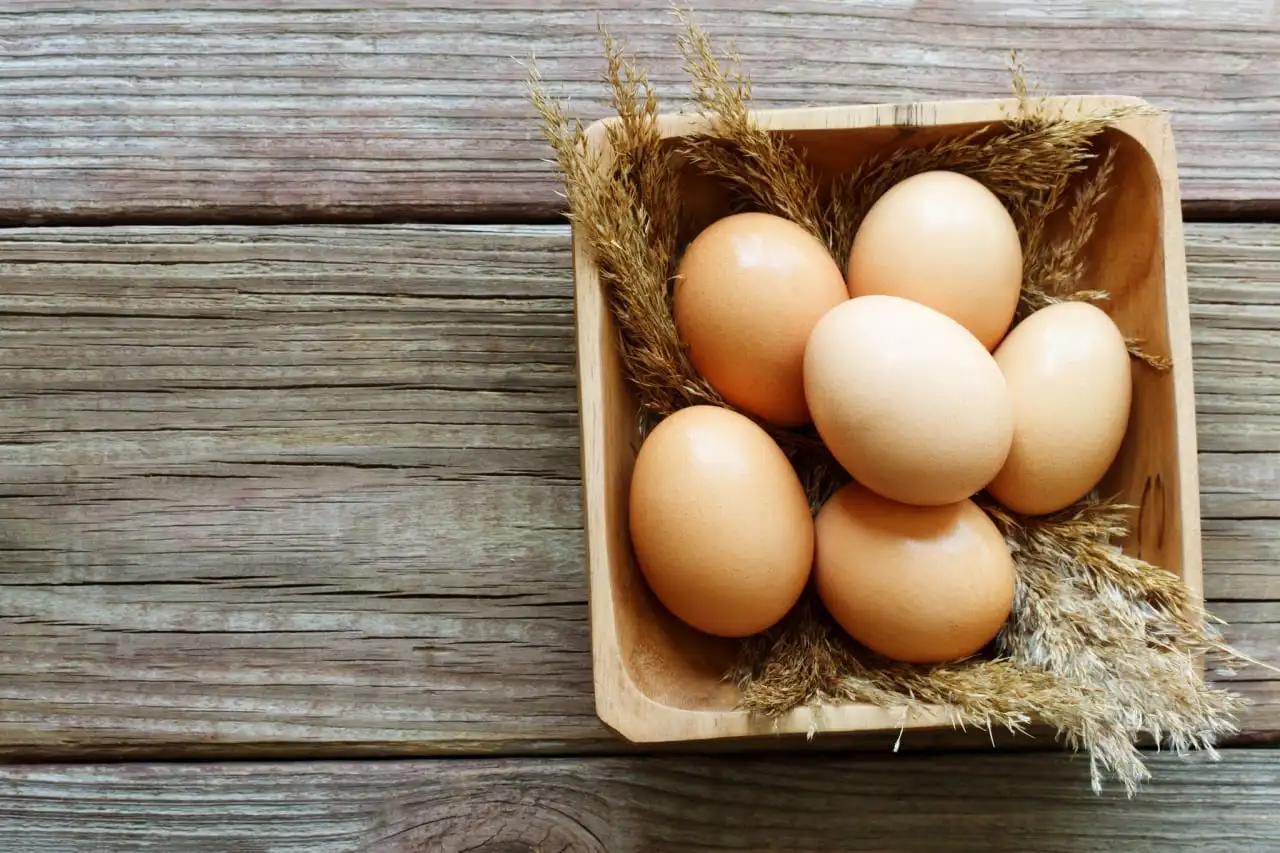



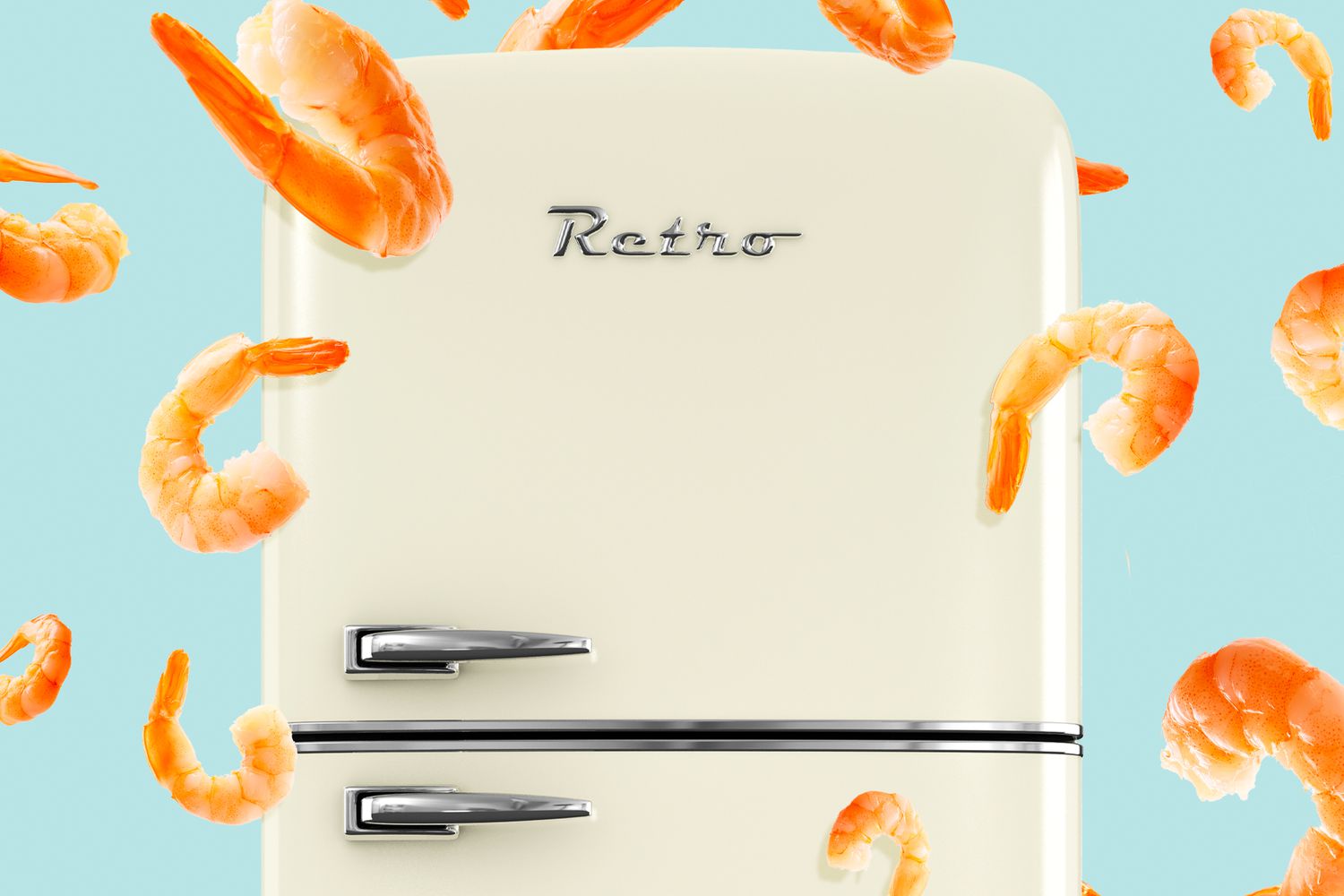


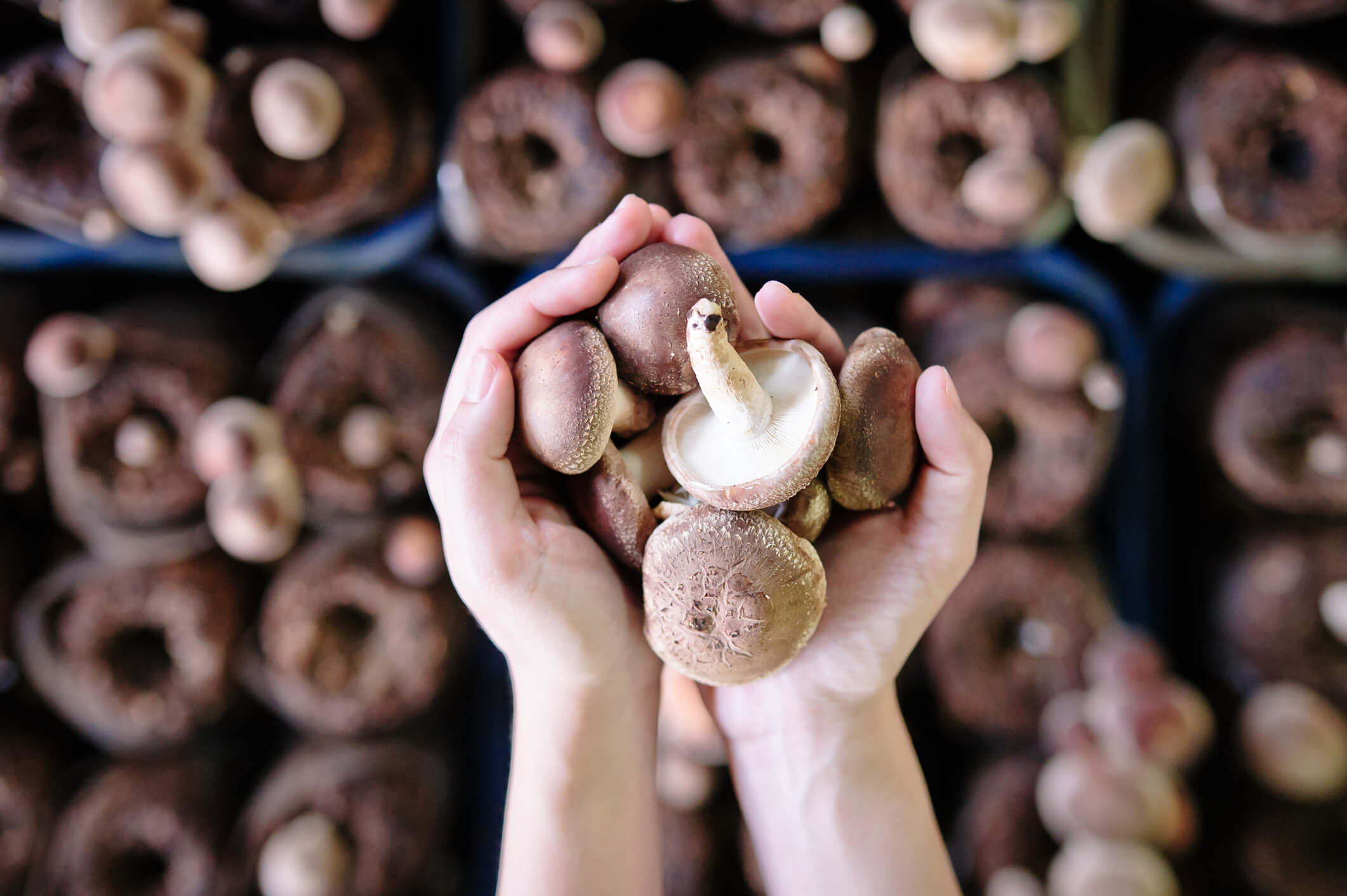

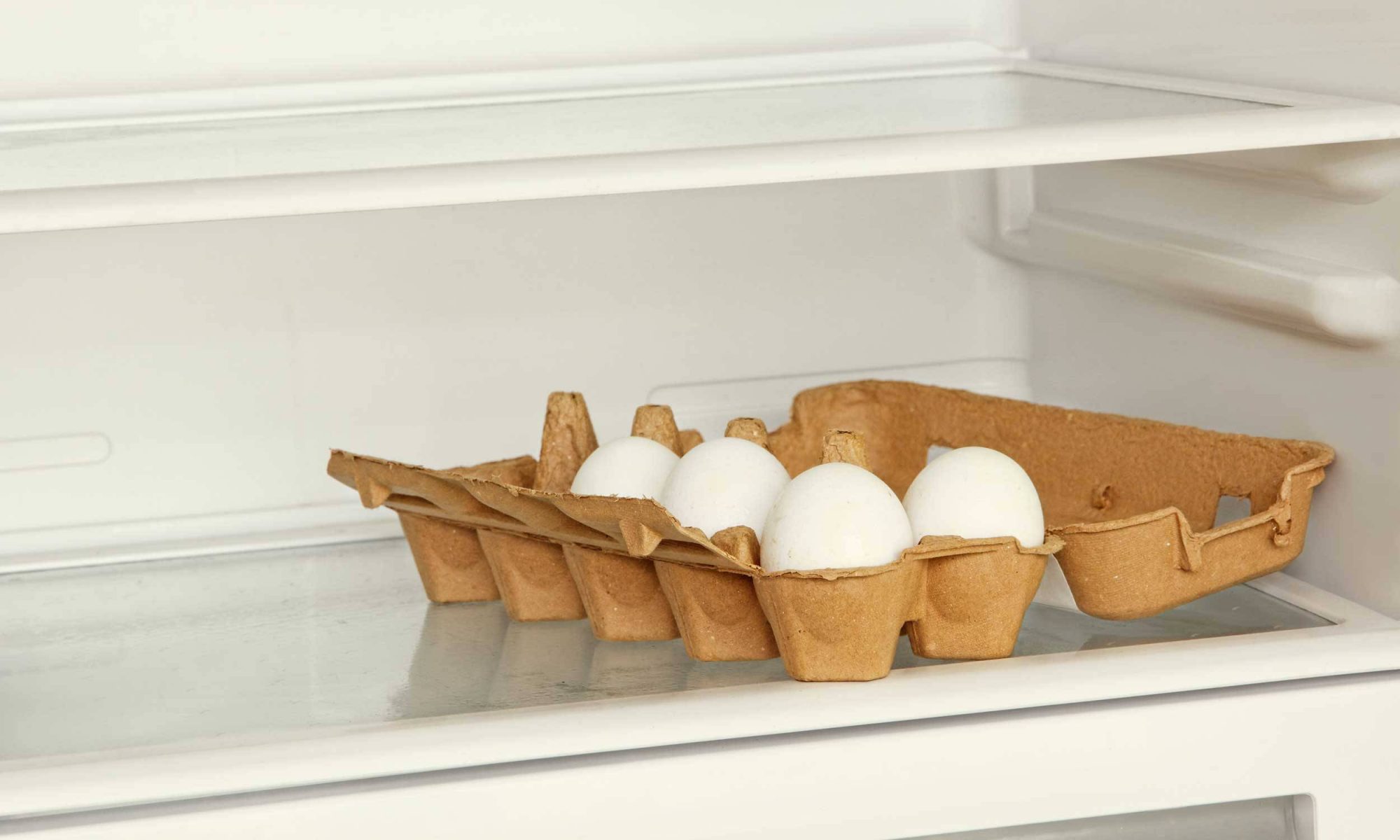
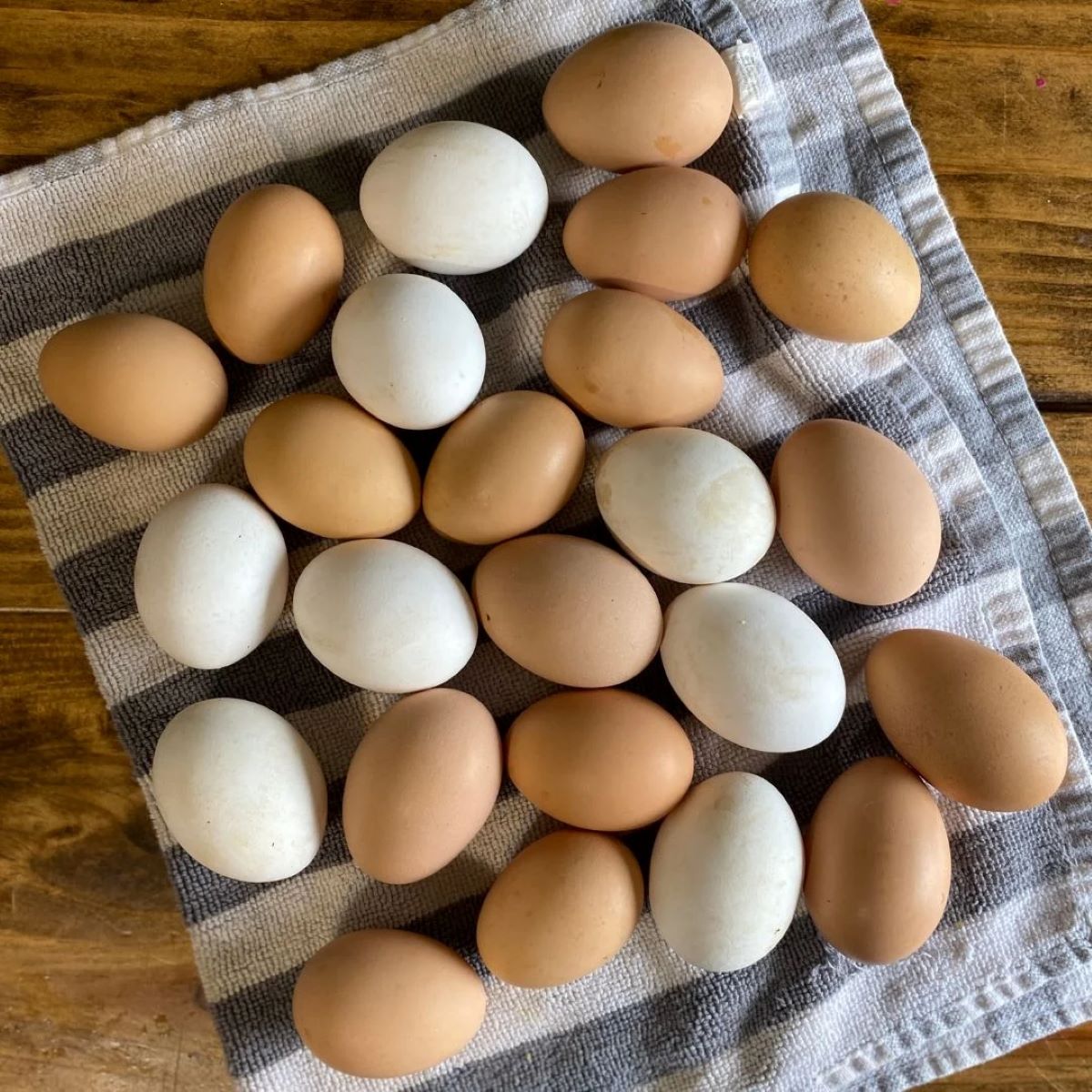
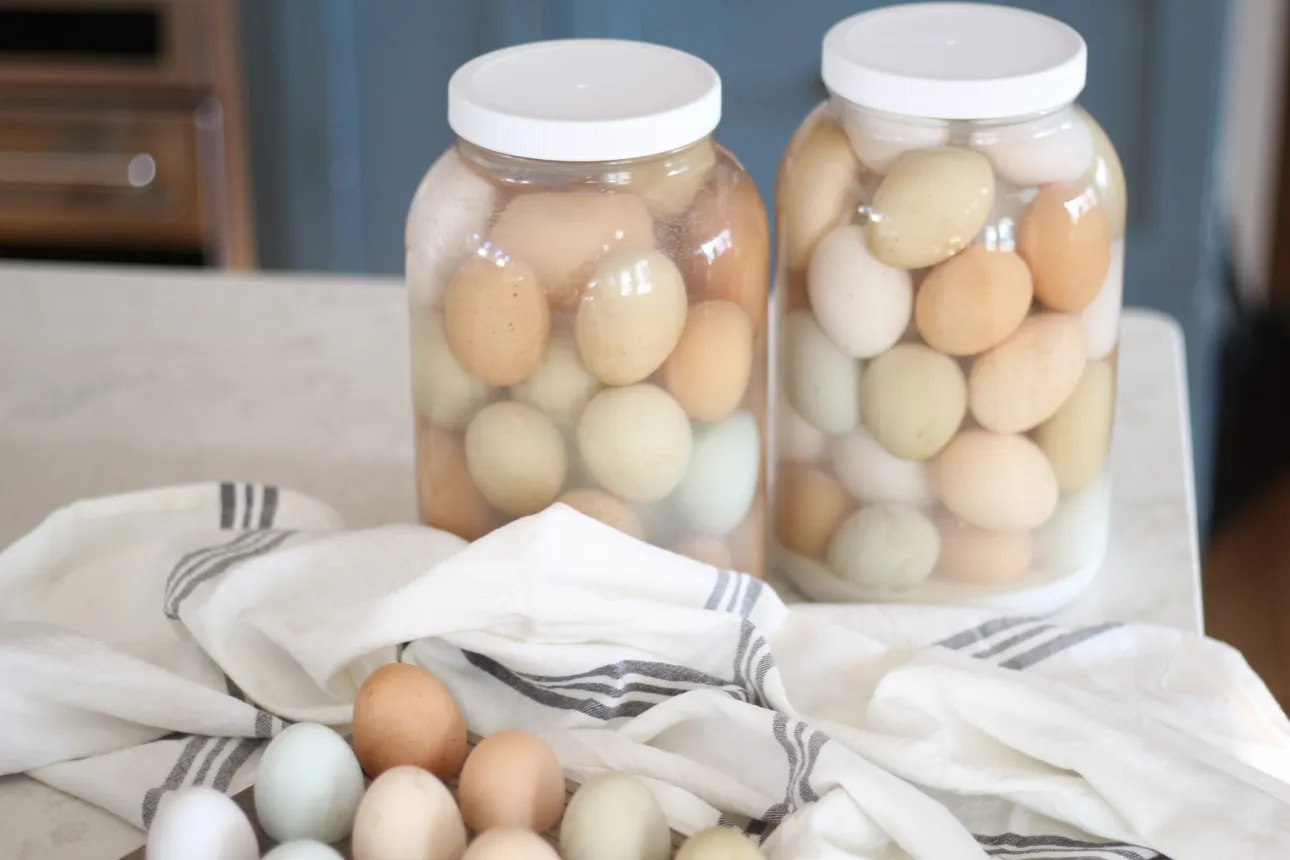
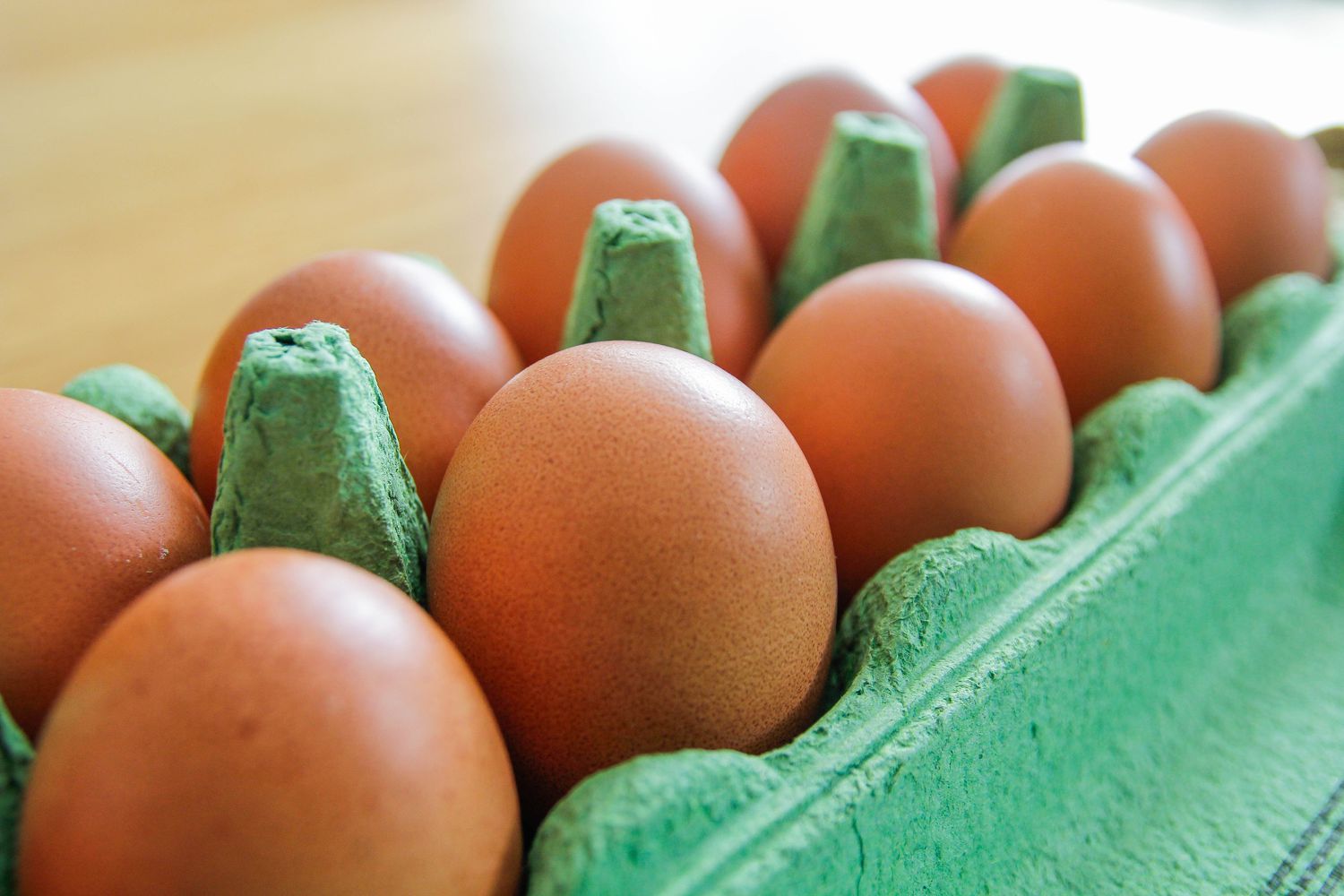
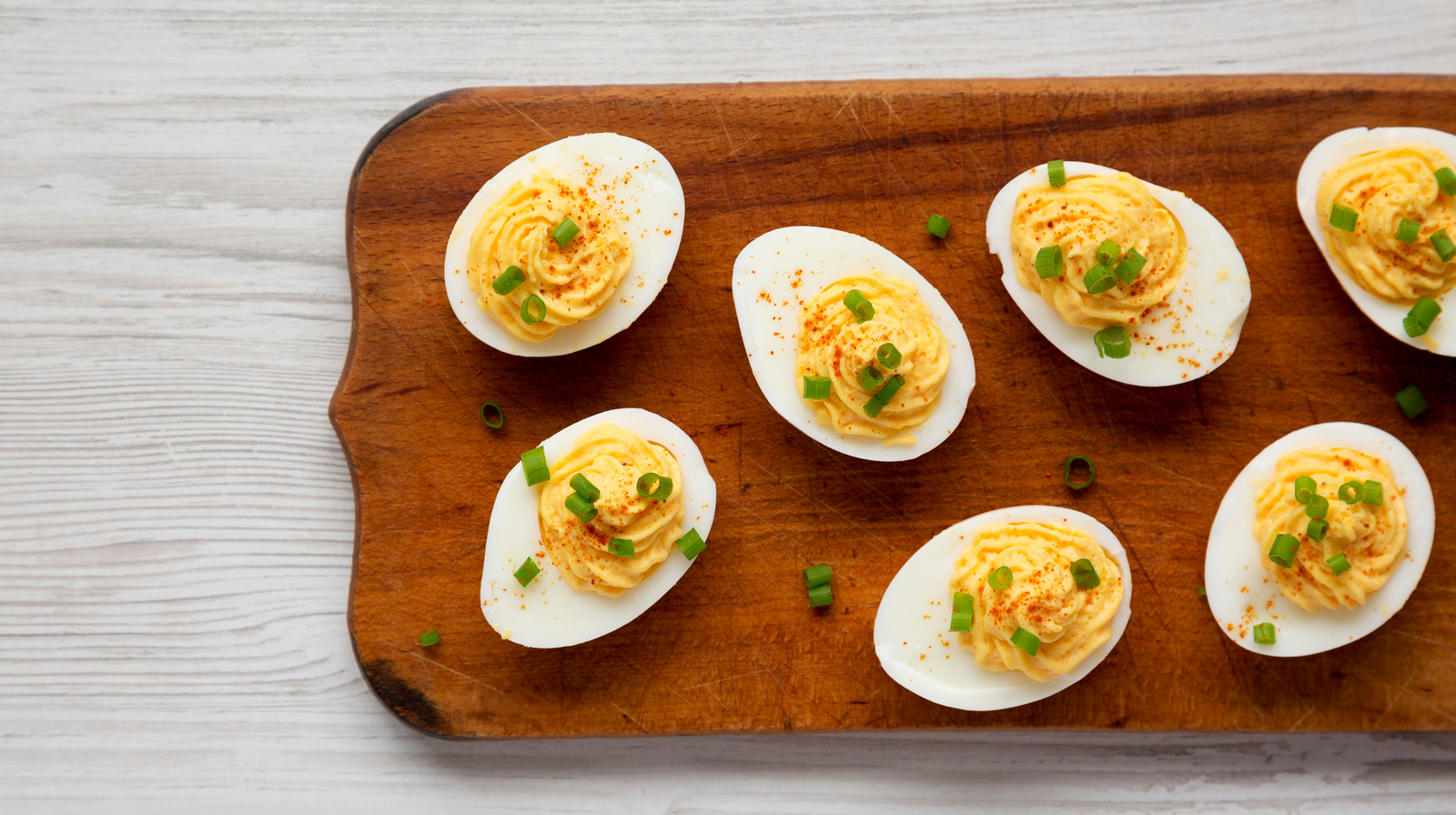

0 thoughts on “How Long Are Fresh Eggs Good For In The Refrigerator”